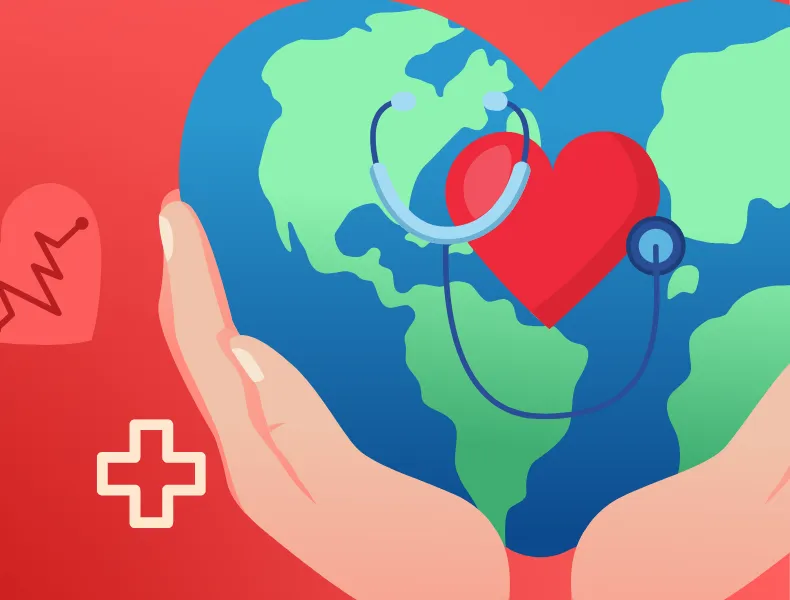Written and medically reviewed by Dorcas Morak, Pharm.D
When that scratchy throat and stuffy nose hit, it's natural to wonder if it's just a common cold or something more severe like COVID-19. With symptoms overlapping between the two, understanding which illness you have can be tricky. Let's break down the differences and similarities between COVID-19 and the common cold to help you navigate the uncertainty.
How Do COVID-19 and Cold Symptoms Differ?
The common cold, caused by over 200 viruses, typically presents with familiar symptoms such as a runny nose, sneezing, and a headache. While COVID-19, caused by the SARS-CoV-2 virus, shares some of these symptoms, it also introduces additional signs like fever, chills, fatigue, muscle aches, loss of taste or smell, and difficulty breathing.
How Does COVID-19 Compare to the Common Cold?
Here is an overview of how COVID-19 compares with the common cold:
1.Incubation Period: COVID-19: Ranges between 2-3 days to 5 days. Common Cold: Usually lasts about 1-3 days but can be as short as 12 hours.
2.Symptoms Start: COVID-19: Typically between days 2-5 after infection, including nasal congestion, sore throat, and cough. Common Cold: Within 72 hours of exposure, presenting as a sniffle, sore throat, or general malaise.
3.Symptoms Peak: COVID-19: Occurs around 3-5 days after symptoms start, often with fever, muscle aches, and headache. Common Cold: Peaks 1-3 days after the initial symptom, characterized by fatigue, cough, congestion, and headache.
4.Start to Feel Better: COVID-19: Improvement usually begins after five days of symptoms. Common Cold: Symptoms start to alleviate within three days.
5.Lingering Symptoms: COVID-19: Breathing difficulties, headaches, and brain fog may persist. Common Cold: A cough can linger for up to 3 weeks, especially in individuals with asthma.
What is Contagious Period: COVID vs. Cold?
Both COVID-19 and the common cold are contagious from the moment of infection until symptoms subside. However, the infectious period varies: a.COVID-19 is most contagious during the first 5-7 days after infection, with some individuals being infectious before symptoms start. b.Common Cold: Most contagious during the initial 2-3 days, but contagion can persist until symptoms resolve.
What Should I Do If I Have COVID or Cold Symptoms?
When symptoms arise, especially during the COVID-19 era, it's essential to consider the possibility of both COVID-19 and the common cold. While testing remains the best way to confirm a COVID-19 diagnosis, understanding the symptoms and stages of each illness can guide appropriate actions to safeguard your health and those around you.
When Should I Seek Medical Intervention?
Whether it's COVID-19 or a cold, staying informed and taking necessary precautions are paramount in managing your health effectively. If symptoms persist or worsen, consulting with a healthcare professional is advisable to receive appropriate care and guidance tailored to your condition. Stay vigilant, stay informed, and prioritize your well-being amidst the uncertainties of illness.
What Medications Help with COVID-19?
Several medications have been identified and are being used to treat COVID-19, targeting various stages of the disease and patient groups. Here's a summary of the key treatments:
Dexamethasone: This corticosteroid has been recommended for hospitalized COVID-19 patients requiring mechanical ventilation or supplemental oxygen. Other corticosteroids like prednisone, methylprednisolone, or hydrocortisone may be used if dexamethasone is not available. It is not recommended for less severe cases due to potential harm.
Veklury (remdesivir): An antiviral drug approved for use in both hospitalized and non-hospitalized patients to prevent hospitalizations when given early in the disease. Studies show that early treatment can help avoid hospitalization.
Monoclonal Antibodies: Lab-created proteins that mimic the immune system's ability to fight off harmful pathogens such as viruses. Bebtelovimab is a newer monoclonal antibody effective against recent variants, administered via IV infusion.
Paxlovid: An oral antiviral medication consisting of Nirmatrelvir and Ritonavir, showing effectiveness when administered within five days of symptom onset. It's recommended for early treatment to reduce the risk of severe disease and is distributed for free by the U.S. federal government.
Molnupiravir (Lagevrio): Another oral antiviral medication made by Merck, shown to prevent hospitalization and death by about 40% when given early in the disease course
Evusheld: A medication for immunocompromised individuals who haven't produced sufficient antibodies after vaccination or those who cannot be vaccinated due to allergies. It's designed to prevent COVID-19 in these high-risk groups. These treatments are part of the arsenal against COVID-19, aimed at reducing the severity of the disease, preventing hospitalizations, and saving lives. It's crucial for individuals who test positive for COVID-19 or those at high risk to consult with healthcare providers early to determine the most appropriate treatment options.
What Medications Help with the Common Cold?
The common cold is caused by viruses, most commonly rhinoviruses, and there's no cure for it. However, certain medications can help alleviate symptoms and make you feel more comfortable while your body fights off the infection. These medications include:
Pain relievers: Over-the-counter pain relievers such as acetaminophen (Tylenol), ibuprofen (Advil, Motrin), or naproxen (Aleve) can help reduce fever, relieve headaches, and ease body aches associated with the common cold.
Decongestants: Decongestants such as pseudoephedrine (Sudafed) or phenylephrine can help relieve nasal congestion by shrinking swollen nasal passages. They are available in both oral and nasal spray forms. However, nasal decongestant sprays should not be used for more than a few days in a row to avoid rebound congestion.
Antihistamines: Antihistamines like diphenhydramine (Benadryl), loratadine (Claritin), or cetirizine (Zyrtec) can help reduce sneezing, runny nose, and itching associated with allergies that may exacerbate cold symptoms.
Cough suppressants: Cough suppressants such as dextromethorphan can help reduce coughing by suppressing the cough reflex. Some over-the-counter cough medications combine a cough suppressant with other ingredients to address multiple symptoms.
Expectorants: Expectorants like guaifenesin (Mucinex) can help thin and loosen mucus in the airways, making it easier to cough up and clear the respiratory tract.
If you need help affording your prescription medications to alleviate your COVID-19 or common cold symptoms, become a member of the RxLess Assurance Plan by downloading our free app. Our real-time price finder ensures the most accurate on-the-go discounts at over 70,000 pharmacies nationwide.
















